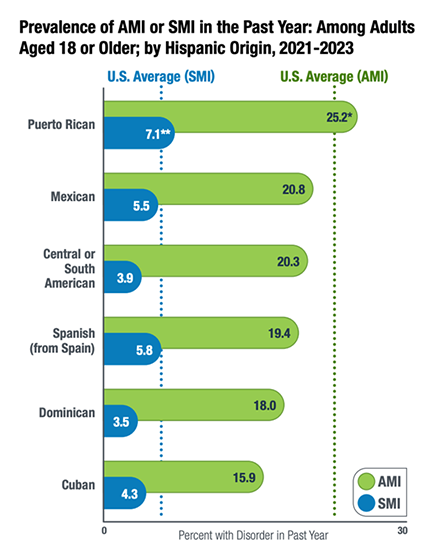FACTS AND FIGURES
Learn about statistics, trends, and other relevant insights for behavioral health practitioners working to reduce health disparities and improve outcomes for people in underserved communities.
Prevalence of Any Mental Illness (AMI) or Serious Mental Illness (SMI)
Mental health is vital to overall well-being, yet mental illness affects nearly one in four U.S. adults
annually. The 2023 NSDUH reports that in the past year, 38.2 million adults had any mental illness (AMI)
and 7.8 million had a serious mental illness (SMI). When examining race and ethnicity, within the Hispanic
population, which represents roughly 19% of the U.S. population (over 62 million people), approximately
20.6% and 5.3% reported having AMI and SMI in the past year, respectively, but disaggregated data reveals
key differences. For example, adults of Puerto Rican origin had higher rates of AMI at 25% and SMI at 7.1%
compared to other Hispanic subgroups, which also surpasses the average U.S. rates.
Cultural factors shape mental health experiences and perceptions, underscoring the need for tailored, culturally
appropriate, and equitable treatment and interventions. Mental Wellness Month reminds us of the importance of
reducing stigma, improving access to care, and fostering supportive communities. Let’s take this opportunity to
highlight the importance of mental wellness and support those in need.

Please see SAMHSA’s and other resources for addressing Mental Wellness: